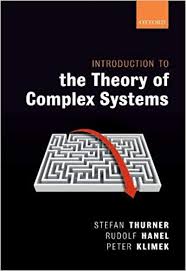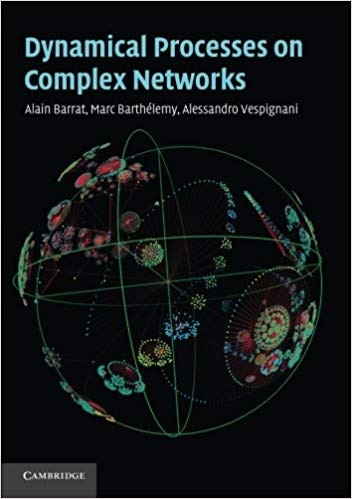Course description and objectives
This course devotes to advanced topics on Complex Networks for the graduate students.
Some topics are as follows:
References:
Network Science, Albert-Laszlo Barabasi
 Albert-Laszlo Barabasi is a Professor at the University of Notre Dame and current Distinguished Professor and Director of Northeastern University‘s Center for Complex Network Research (CCNR) associate member of the Center of Cancer Systems Biology (CCSB) at the Dana–Farber Cancer Institute, Harvard University, and visiting professor at the Center for Network Science at Central European University.
Albert-Laszlo Barabasi is a Professor at the University of Notre Dame and current Distinguished Professor and Director of Northeastern University‘s Center for Complex Network Research (CCNR) associate member of the Center of Cancer Systems Biology (CCSB) at the Dana–Farber Cancer Institute, Harvard University, and visiting professor at the Center for Network Science at Central European University.
 Introduction to the Theory of Complex Systems Complexity Science Hub, Vienna
Introduction to the Theory of Complex Systems Complexity Science Hub, Vienna
Dynamical Processes on Complex Networks, Alain Barrat,
Alain Barrat Research scientist C.N.R.S. CPT, Marseille, France Institute of Scientific Interchange, Turin, Italy, Turing Center for Living Systems, Marseille, France
 Marc Barthelemy, Institut de Physique Théorique
Marc Barthelemy, Institut de Physique Théorique
 Alessandro Vespignani, Sternberg Family Distinguished Professor &Director Physics, Bouve College Health Sciences
Alessandro Vespignani, Sternberg Family Distinguished Professor &Director Physics, Bouve College Health Sciences
Networks: An Introduction, M. E. J. Newman, Oxford University Press, 2018.

Mark Newman is the Paul Dirac Collegiate Professor of Physics at the University of Michigan and an external faculty member of the Santa Fe Institute.
Some Useful Tools
- Pajek: A simple network visualization tool. (Pajek manual)
- Gephi is the leading visualization and exploration software for all kinds of graphs and networks. Gephi is open-source and free.
- NetworkX is a Python package for the creation, manipulation, and study of the structure, dynamics, and functions of complex networks.
- graph-tool: A python module to help with the statistical approach.
- GUESS: An exploratory data analysis and visualization tool.
- SNAP: Stanford Network Analysis Platform.
- NetLogo: A multi-agent programmable modeling environment.
- UCINET: A social network visualization and analysis tool.
- iGraph: A software package for manipulating undirected and directed graphs.



